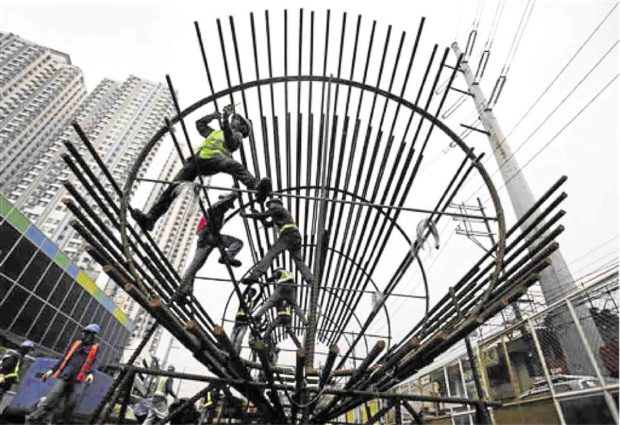Invest in PH infra, investors urged
MANILA -Philippine economic managers are drumming up the call for private-sector investors to do business in the country, touting the Marcos administration’s intention to address underinvestment in infrastructure as well as a pipeline of 194 flagship projects that cost a total of $165 billion.
“Infrastructure spending is front and center of our growth strategy,” Finance Secretary Benjamin Diokno said at an economic briefing held in Washington DC.
“We are committed to reverse the decades-long underinvestment in infrastructure,” Diokno said, noting that government spending on infrastructure averaged from 2001 to 2015 at only 2 percent of gross domestic product (GDP).
The finance chief and others in the economic team—including Budget Secretary Amenah Pangandaman, National Economic and Development Authority Secretary Arsenio Balisacan and Bangko Sentral ng Pilipinas Governor Felipe Medalla—are in the United States for the Spring Meetings of the World Bank and International Monetary Fund.
Large outlay
The current administration’s plan is to maintain infrastructure spending at 5 percent to 6 percent of GDP through to 2028. This means an outlay program of between $20 billion and $40 billion yearly.
Diokno said the government was determined to sustain high infrastructure investment through the public-private partnership (PPP) mechanism, particularly in projects related to energy, logistics, transportation, telecommunications and water infrastructure.
“Now, the spectrum of industries that foreign investors can participate in has grown wider than ever before,” he said. “The economic liberalization measures that the Philippine government has enacted in recent years have opened up key high-growth sectors to international participation.”
Diokno was referring to recently passed amendments to the Retail Trade Liberalization Act, Foreign Investments Act and the Public Service Act that relaxed restrictions on foreign investments in the Philippines up to the point of full foreign ownership of a project.
Priority industries
“[W]e invite you to take a look at our Strategic Investment Priority Plan (SIPP), which identifies priority industries, projects and activities that can be granted fiscal incentives under the CREATE (Corporate Recovery and Tax Incentives for Enterprises) Act,” Diokno said.
The SIPP serves as the main basis for determining priority industries, projects and activities that can be granted fiscal incentives under the CREATE Act.
Through this law, the Philippines also offers a simpler and more effective fiscal incentives system that is performance-based, time-bound, targeted and transparent.
Meanwhile, Balisacan said the Marcos administration has made it a top priority to use PPP to support and complement its infrastructure drive, providing opportunities in sectors such as energy, water, logistics, transportation, agribusiness, manufacturing, tourism, health, education and digital connectivity.
RELATED STORIES:
https://business.inquirer.net/386266/marcos-govt-goes-all-out-on-ppp-infra-strategy
https://business.inquirer.net/358544/govt-to-spend-less-on-infra-next-year
https://business.inquirer.net/352288/marcos-admin-eyes-to-spend-5-to-6-of-gdp-for-build-build-build-program-annually

